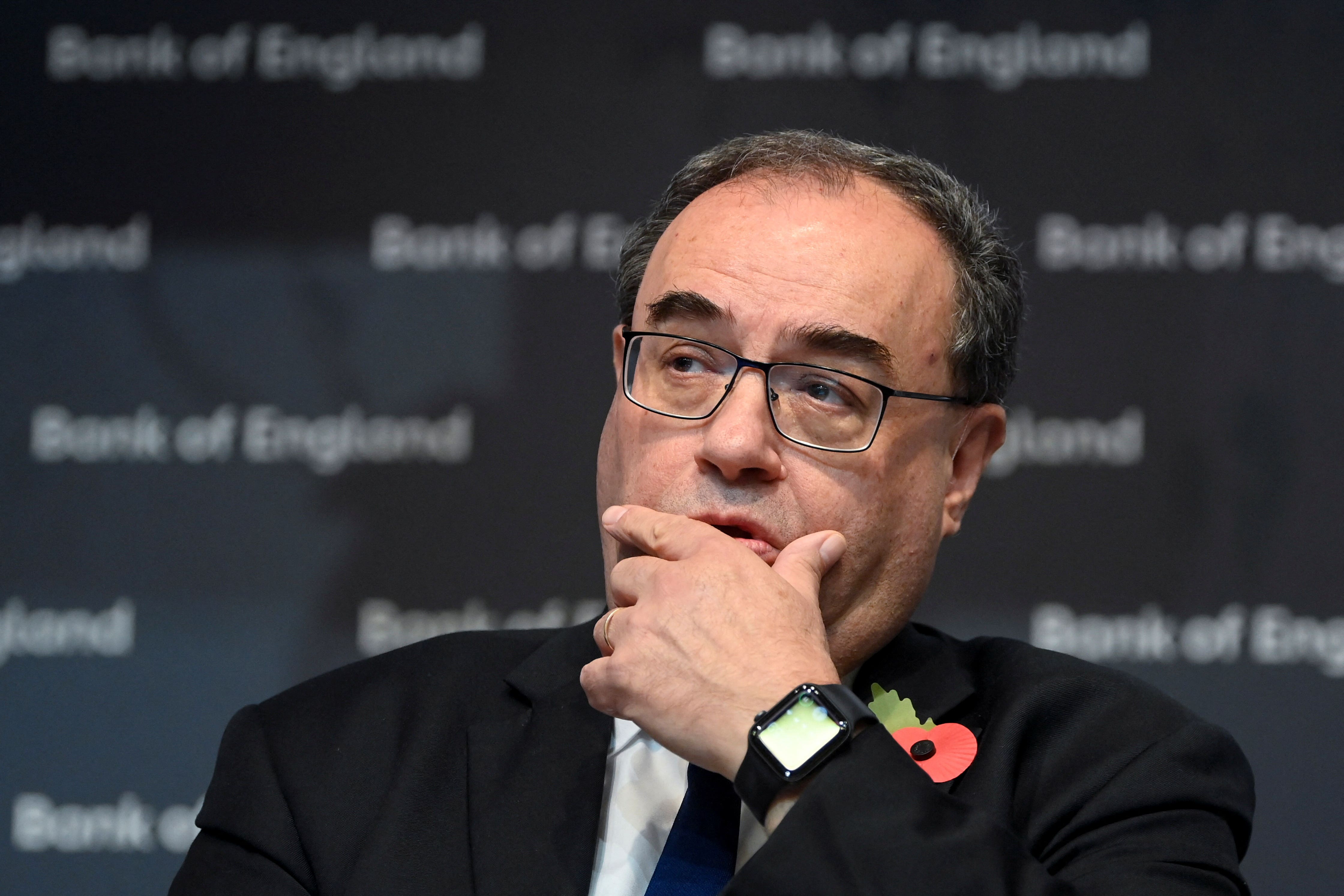UK was ‘hours’ from potential financial meltdown after mini-Budget, Bailey confirms
Andrew Bailey said Bank had to step in to mitigate a ‘very real threat to financial stability’

Your support helps us to tell the story
From reproductive rights to climate change to Big Tech, The Independent is on the ground when the story is developing. Whether it's investigating the financials of Elon Musk's pro-Trump PAC or producing our latest documentary, 'The A Word', which shines a light on the American women fighting for reproductive rights, we know how important it is to parse out the facts from the messaging.
At such a critical moment in US history, we need reporters on the ground. Your donation allows us to keep sending journalists to speak to both sides of the story.
The Independent is trusted by Americans across the entire political spectrum. And unlike many other quality news outlets, we choose not to lock Americans out of our reporting and analysis with paywalls. We believe quality journalism should be available to everyone, paid for by those who can afford it.
Your support makes all the difference.The UK was just hours from potential total financial meltdown in the wake of Liz Truss’s disastrous mini-budget, the Governor of the Bank of England has confirmed.
Andrew Bailey said the Bank was forced to step in “quickly” and “decisively” to mitigate a “very real threat to financial stability” after markets were spooked by the calamitous £45 billion tax giveaway.
“We certainly reached a point where markets were very unstable, and these were core markets, this is the Government bond market, which is in many ways the most core of all,” he told Channel 4 News.
“And it was becoming unstable and it was affecting … pension funds for instance, and how they were operating.
“And our worry was that when you get into that situation, this can easily spread very rapidly and then you have a huge job on your hands to get it back under control.
“So we had to step in quickly and we had to step in quite decisively.”
Asked if the UK was days, even hours, away from potential total meltdown, Mr Bailey said: “I think at that point when we intervened, I can tell you that the messages we were getting from the markets were that it was hours.”
He said it was “hard to compare” the autumn’s turmoil with the global financial crisis in 2008, adding: “I’m not sure I could give you an exact comparison, but this felt and was a very real threat to financial stability.”
The Bank intervened in direct response to the previous administration’s ill-fated tax-cutting strategy in September, launching an emergency bond-buying programme to prevent borrowing costs from spiralling out of control.
The turmoil threatened to trigger a mini financial crisis in the UK at one stage, leaving some pension funds at risk of collapse.
Mr Bailey suggested the chaos that followed the mini-budget was a “particular UK issue”, rather than the result of global shocks.
He also argued former business secretary Jacob Rees-Mogg was “wrong” to blame the turmoil in the markets partly on the Bank’s failure to raise interest rates.
“Certainly, global markets have had shocks this year, we’ve had common shocks, Ukraine would be an example, but this was a particular UK issue,” he said.
Mr Rees-Mogg previously suggested that the market turbulence could primarily have been the result of the Bank’s failure to boost interest rates in line with US policymakers.
He told Radio 4’s Today programme that “jumping to conclusions about causality is not meeting the BBC’s requirement for impartiality” after presenter Mishal Husain suggested the former chancellor’s actions had been the trigger for the fluctuations in sterling and Government bonds.
But Mr Bailey said he thought it would be “wrong” to suggest the run on the pound was down to a lack of intervention from the Bank, adding: “What I would say is since we’ve observed markets now correcting themselves, and if you ask… certainly before today, what’s been the change in policy in the intervening period, it’s been a change in fiscal policy.”
He went on: “Moreover, I think… there were comments about it was due to global markets. I mean, I don’t really think that is the case.
“I think… certainly global markets have had shocks this year, we’ve had common shocks, Ukraine would be an example. But this was a particular UK issue.”


